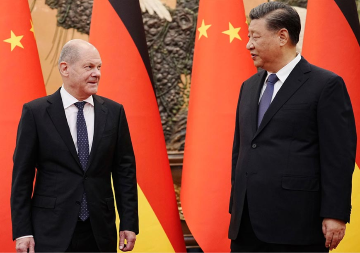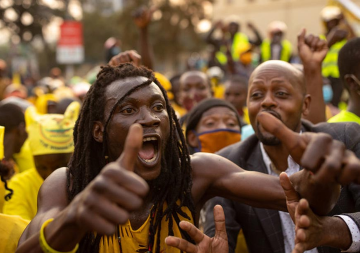At a discussion on "Conversations on Kashmir: Socio-political and economic aspirations of J&K" at ORF, panellists insisted upon the need for truth and reconciliation which, however, can only be possible after the admission of guilt by the parties concerned.

In the recently concluded assembly elections, Jammu and Kashmir witnessed record turnouts, indicating the decisive stand of the people on democracy. Unfortunately, due to a fractured mandate, the state is now under Governor’s rule. In order to understand the aspirations of the people of Jammu and Kashmir, a panel discussion "Conversations on Kashmir: Socio-political and economic aspirations of J&K" was held at Observer Research Foundation on January 19.
The discussion was chaired by Mr. Vikram Sood, Advisor to ORF. Three panellists, Rahul Pandita, author and journalist; Sanjay Kaul, BJP spokesperson and Iftikhar Gilani, bureau chief, DNA. The agenda of the discussion was to understand the aspirations of various stakeholders in the state and how the central government intended to negotiate with the same.
Rahul Pandita began the session by reminding that January 19, 2015 marks 25 years of exodus of Kashmiri Pandits from Kashmir. Iftikhar Gilani emphasised the need of increased regional participation in the democratic processes. BJP’s agenda of good governance was reiterated by Sanjay Kaul as the most important element in the future of the state.
Shedding light on its turbulent contemporary history, religious extremism and the geo-politically sensitive nature of the state, the panellists voiced their opinions on various aspects of the Jammu and Kashmir ’narrative.’ On one hand it was stated that new narratives could not be built at the cost of the old ones, while on the other the need to move on was emphasised. The need for objective research and documentation was raised as a crucial step towards understanding the deterioration of relations between the two communities. Exaggerations and mutual ill will can only be countered through steady flow of unbiased information. Discussing the demographic changes in Jammu and Kashmir, the panellists debated the possibility of a safe homecoming of the Pandit community to the Valley. One crucial point of contention was whether the Pandits would want to come back. Do they even have the freedom to do so? It was also debated whether the Kashmiri Pandits still see themselves as uniquely Kashmiri or have they syncretised with the outside world and become a global community. Lacunae in the previous central government’s rehabilitation policies were pointed out at this juncture.
Progressing ahead, the panellists deliberated upon the ’polarised mandate’ in the assembly elections. Polarisation was variously seen by them as religious, regional and also as resistance to poor governance. Due emphasis was laid on the need to establish separate regional councils for J&K with a view to empower each ethnic group.
As the discussion advanced, the political role of the two biggest parties of the state -PDP and BJP- was discussed. Would it not be a loss for PDP if it refuses to collaborate with BJP for government formation in future? Since the people of J&K were decisive against the incumbent National Conference, the onus now rests on PDP to provide the state with a stable government. An informed discussion on Article 370 was also thought to be a major element in the political discourse on J&K.
After the key points were made by the panellists, the Chair opened the session for the floor and the discussion proceeded with observations and comments from the attendees. One of the issues raised was the indifference meted out to the people of Ladakh despite its strategic importance. Several questions were raised on the role and relevance of Pakistan, plurality of voices in J&K and biased representations of truth. An engaging discussion ensued after an attendee referred to a recent write-up by an eminent journalist SA Saiyar and pointed out the falsity of equivalence in violence faced respectively by the two religious communities.
The panellists insisted upon the need for truth and reconciliation which, however, can only be possible after the admission of guilt by all the parties concerned. The bitterness of history should not be allowed to weigh down the prospects of future. Questions were also raised about the rise of BJP in the state as the second largest party. Does it mean that the people have warmed up to the development agenda of the party? Or, is the Valley still wary of it and decidedly kept it away from power?
The views expressed above belong to the author(s). ORF research and analyses now available on Telegram! Click here to access our curated content — blogs, longforms and interviews.




 PREV
PREV

